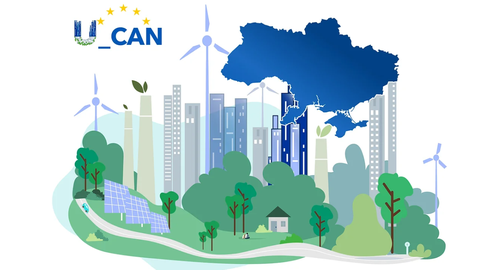Dec 04, 2024
U_CAN becomes a liaison partner of CEN/TC 465 Committee for 'Sustainable and Smart Cities and Communities'
The project "U_CAN - Ukraine towards Carbon Neutrality" is excited to gain an important new cooperation partner. The Horizon Europe project which was developed and is coordinated by WISSENSARCHITEKTUR - Laboratory of Knowledge Architecture has been unanimously approved as a liaison partner of the CEN/TC 465 Committee for 'Sustainable and Smart Cities and Communities'.
CEN, the European Committee for Standardization, is an association that brings together the National Standardization Bodies of 34 European countries. CEN provides a platform for the development of European Standards and other technical documents in relation to various kinds of products, materials, services and processes.
Knowledge Sharing - Enhanced Standards - Increased Credibility
The cooperation with CEN holds immense potential for Ukrainian municipalities striving for sustainability, innovation, and resilience. By becoming a liaison partner, U_CAN will actively contribute to the establishment and alignment of European standards in Ukrainian municipalities.
U_CAN will serve as a bridge, ensuring that Ukrainian cities benefit from the latest European expertise and practices in smart urban development.
The partnership will support the creation of localized standards tailored to the unique needs and challenges of Ukrainian cities, ensuring alignment with global best practices.
Participation in CEN/TC 465 enhances the visibility and credibility of Ukrainian municipalities on the European stage, opening doors to further partnerships and funding opportunities.
About U_CAN. Ukraine towards Carbon Neutrality
The U_CAN project, funded by Horizon Europe and led by WISSENSARCHITEKTUR - Laboratory of Knowledge Architecture, seeks to support Ukrainian cities on their path toward climate neutrality.
Aligned with the European Green Deal (EGD) and the EU's mission for Climate-Neutral and Smart Cities (CNSC), the project aims to facilitate a practical bottom-up approach for Ukrainian municipalities to achieve climate neutrality by 2050. Despite the ongoing conflict in Ukraine, this project offers a comprehensive framework to foster climate resilience and sustainable urban development in Ukrainian cities through international cooperation, capacity-building, and knowledge transfer.
